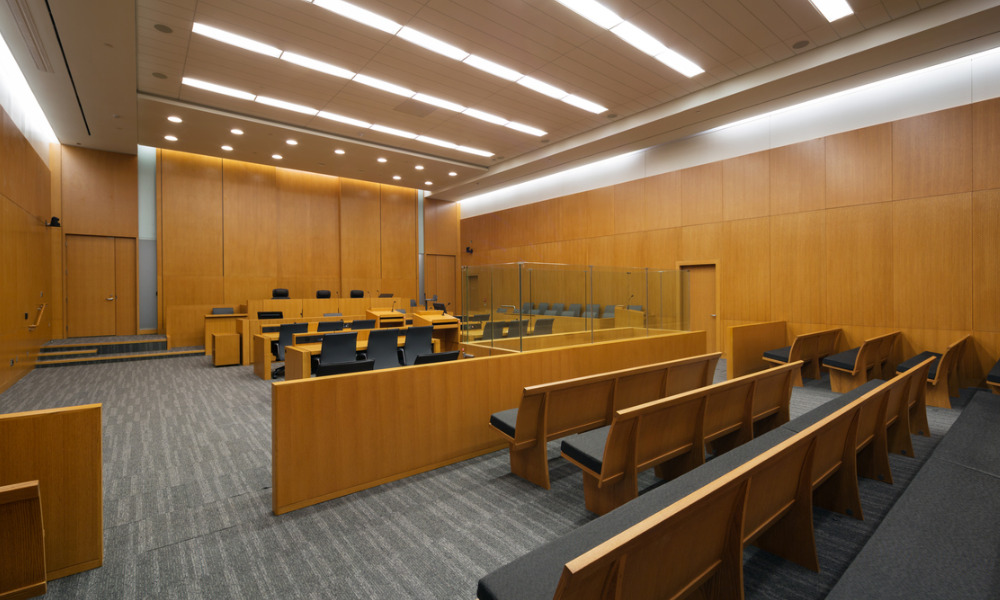Today’s roundup for courthouses across Canada

Courts across Canada have been taking measures to control the spread of the new coronavirus, COVID-19. Below is a roundup of actions courts are taking across the country.
British Columbia
Provincial Court of British Columbia
Finding out about COVID-19 incidents in BC courthouses and how you can help prevent them
The courts in B.C., working together with the provincial government’s court services branch and public health officials, have developed a detailed protocol to ensure prompt and coordinated COVID-19-related communication regarding testing and exposures in courthouses. The update on Feb. 2 explains how and when such information will be conveyed. The BC Centre for Disease Control and the public health ministry have released guidance for courthouses during the pandemic, which utilizes plain language, addresses court users’ concerns about safety and potential exposure risks and identifies the measures individuals may take to protect themselves and others. The BC Centre for Disease Control has also updated its COVID-19 public exposures website with information about courthouse exposure events and incidents.
Revised CRIM 13 Initial Appearance Court During COVID-19
The practice direction, updated on Feb. 2, lays down guidelines regarding initial appearance court for criminal matters amid the pandemic.
Supreme Court of British Columbia
Notice to the Profession: Grace Period to February 26, 2021 for Registry Acceptance of Former Supreme Court Family Forms
Effective Mar. 1, registry staff will no longer accept the former Supreme Court family forms and will only accept the forms as amended by Order in Council 467/2020 and Order in Council 26/2021. The court is implementing a grace period for acceptance of the previous forms, which will last until Feb. 26.
Alberta
Court of Queen’s Bench of Alberta
Submission of draft orders in Word format
The court asks counsel and parties to send draft orders in .doc or docx format, where possible, which will enable the court to more promptly process the documents sent via email.
Saskatchewan
Provincial Court of Saskatchewan
Update for Court Users and the Public
The court is maintaining its operations with the guidance of the chief medical health officer and is continuing to conduct proceedings at the 13 permanent courthouses. Where possible, phone and video appearances replace in-person attendance, but for many trials and preliminary hearings the court may require counsel or unrepresented accused individuals to participate in a trial management hearing usually 7-14 days before the scheduled date. The judge will then decide whether the matter can safely move forward on the scheduled date or if another date should be set. Circuit point dockets will proceed via phone from the permanent court location. This notice is effective until Mar. 26.
Manitoba
Court of Queen’s Bench of Manitoba
Notice - Out of Province Parties and Witnesses and the Continuing Obligation to Isolate for 14 days
Until further notice, the court continues to require all parties or witnesses coming from outside the province and seeking to attend their proceedings in person to isolate for the requisite 14 days.
Nova Scotia
Provincial Court of Nova Scotia and Youth Justice Court
New process to vary release/probation orders by consent
Effective immediately, the court is imposing a new procedure that enables the consent variation of release conditions for individuals who have been released either by the court under s. 515 of the Criminal Code; or by the police under s. 498, 499 or 503 of the code; or for variation of probation conditions under s. 732.2(3) of the code.
Newfoundland and Labrador
Supreme Court of Newfoundland and Labrador
Supreme Court of Newfoundland and Labrador Guidelines for Re-opening
The guidelines updated on Feb. 1 provide the plan for court operations in the context of the pandemic, tackling matters such as distancing measures, handwashing and sanitizing, cleaning and disinfection, personal protective equipment, the screening of court attendees and their belongings, registry services and document filings. The guidelines also go over which matters are being held in person or virtually in the general and family divisions, the special precautions imposed for jury trials, the communication of updates and the manner for raising health and safety concerns with the court.










